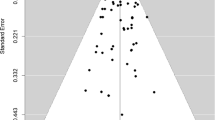Conclusion
It might be tempting to view this paper simply as a compilation and collection of the conditions in the social choice literature and an orderly presentation of the relationships among these conditions. While we think that this alone would make it useful we hope this paper will serve as more than a reference guide, that it will also help systematize research in various areas.
It would be interesting, for example, to take each subgroup of the rationality conditions and determine what impossibility results can be obtained when each of the conditions in the subgroup is substituted for the traditional TR, QTR and AR conditions. It would then be possible to develop an overall picture of the structure and robustness of the impossibility results for each subgroup of conditions and hence for all the rationality conditions.
We would also hope that this paper would stimulate some discussion of the fairness and reasonableness of the conditions presented here. Many of the conditions covered above are, we believe, neither fair nor reasonable. Achievement of some consensus as to what constitute meaningful requirements for a social choice function would help provide a more common direction for social choice research.
Similar content being viewed by others
References
Arrow, Kenneth J. “Rational Choice Functions and Orderings,”Economica, 26 (1959), 121–129.
——.Social Choice and Individual Values. New York: John Wiley and Sons, 1963 (2nd edition).
Blair, D. H., G. Bordes, J. S. Kelly and K. Suzumura. “Impossibility Theorems Without Collective Rationality,”Jour. Econ. Theory 13(1976), 361–79.
Blau, Julian. “The Existence of Social Welfare Functions,”Econometrica 25 (1957), 302–313.
——. “A Direct Proof of Arrow's Theorem,”Econometrica, 40 (1972), 61–67.
Bloomfield, Stefan. “A Social Choice Interpretation of the Von-Neumann Morgenstern Game,”Econometrica, 44 (1976), 105–114.
Bordes, Georges. “Consistency, Rationality and Collective Choice,”Rev. Econ. Stud. 53(1976), 451–57.
Brown, Donald. “Aggregation of Preferences,”Quart. Jour. Econ. 89 (1975), 456–469.
--. “Acyclic Aggregation over Finite Sets of Alternatives,”Rev. Econ. Stud., forthcoming (1976).
Chernoff, Herman. “Rational Selection of Decision Functions,”Econometrica, 22 (1954), 422–443.
Condorcet, Marquis de.Essai sur l'Application de l'Analyse à la Probabilité des Dècsions Rendues à la Pluralité des Voix, Paris 1785.
Ferejohn, John and Grether, David. “Regular Choice and Power Structure,” mimeographed, California Institute of Technology, 1975.
——. “Weak Path Independence,”Jour. Econ. Theory 14(1977), 19–31.
Fine, B. and Fine, K. “Social Choice and Individual Ranking I,”Rev. Econ. Stud., 41 (1974a), 303–322.
——. “Social Choice and Individual Ranking II,”Rev. Econ. Stud. 41 (1974b), 459–475.
Fishburn, Peter C. “A Comparative Analysis of Group Decision Methods,”Beh. Sci. 16 (1971), 538–544.
——. “Even Chance Lotteries in Social Choice Theory,”Theory and Decision, 3 (1972), 18–40.
——.The Theory of Social Choice. Princeton, N.J.: Princeton University Press, 1973.
——. “Social Choice Functions,”SIAM Rev. 16 (1974a), 63–90.
——. “Subset Choice Conditions and the Computation of Social Choice Sets,”Quart. Jour. Econ. 88 (1974b), 320–329.
Gibbard, Allan. “Social Choice and the Arrow Conditions,” unpublished paper, University of Pittsburgh, 1969.
Hansson, Bengt. “Choice Structures and Preference Relations,”Synthese 18 (1968), 443–458.
——. “Voting and Group Decision Functions,”Synthese 20 (1969), 526–537.
——. “The Independence Condition in the Theory of Social Choice,”Theory and Decision, 4 (1973), 25–50.
--. “The Existence of Group Preference Functions,”Public Choice, XXVII, Winter (1976).
Herzberger, Hans. “Ordinal Preference and Rational Choice,”Econometrica 41 (1973), 187–238.
Mas-Colell, A., and Sonnenschein, H. “General Possibility Theorems for Group Decisions,”Rev. Econ. Stud. 39 (1972), 185–192.
May, Kenneth. “A Set of Independent Necessary and Sufficient Conditions for Simple Majority Decision,”Econometrica, 20 (1952), 680–684.
Nelson, L. “Some Equivalences Among Path Independence Axioms,” mimeographed, California Institute of Technology, 1973.
Parks, Robert.Rationalizations, Extensions, and Social Choice Paths, unpublished Ph.D. dissertation, Purdue University, 1971.
--. “Further Results on Path Independence, Quasi-Transitivity and Social Choice,”Public Choice, XXV, Summer (1976).
Plott, Charles R. “Recent Results in the Theory of Voting,”Frontiers in Quantitative Economics. Edited by Michael Intrilligator. Amsterdam: North-Holland, 1971.
——. “Ethics, Social Choice Theory and the Theory of Economic Policy,”Jour. Math. Soc. 2 (1972), 181–208.
——. “Path Independence, Rationality and Social Choice,”Econometrica, 41 (1973), 1075–1091.
--. “Rationality and Relevance in Social Choice Theory,”Amer. Econ. Rev., forthcoming a.
--. “On Game Solutions and Revealed Preference Theory,”Jour. Econ. Theory,, forthcoming b.
Richelson, Jeffrey. “A Comparative Analysis of Social Choice Functions,”Beh. Sci. 20 (1975), 331–337.
Richter, Marcel K. “Revealed Preference Theory,”Econometrica, 34 (1966), 635–645.
——. “Rational Choice,”Preferences, Utility and Demand. Edited by J. S. Chipman, L. Hurwicz, M. K. Richter and H. F. Sonnenschein. New York: Harcourt, Brace and Jovanovich, 1971.
Schwartz, Thomas. “Rationality and the Myth of the Maximum,”Nous 6(1972), 97–117.
Sen, A. K. “Quasi-Transitivity, Rational Choice and Collective Decisions,”Rev. Econ. Stud. 36 (1969), 381–392.
.Collective Choice and Social Welfare. San Francisco: Holden-Day, 1970.
. “Choice Functions and Revealed Preference,”Rev. Econ. Stud. 38 (1971), 307–317.
——. “Social Choice Theory: A Re-Examination,”Econometrica 45(1977), 53–89.
—— and Pattanaik, P.K. “Necessary and Sufficient Conditions for Rational Choice Under Majority Rule,”Jour. Econ. Theory 1 (1969), 178–202.
Smith, John H. “Aggregation of Preferences With Variable Electorate,”Econometrica, 41 (1973), 1027–1042.
Uzawa, H. “Note on Preference and Axioms of Choice,”Annals of the Institute of Mathematical Statistics, 8 (1956), 35–40.
Von Neumann, J. and Morgenstern, O.The Theory of Games and Economic Behavior. Princeton, N.J.: Princeton University Press, 1947. 2nd edition.
Wilson, Robert. “The Finer Structure of Revealed Preference,”Jour. Econ. Theory 2 (1970), 348–353.
——. “The Game-Theoretic Structure of Arrow's General Possibility Theorem,”Jour. Econ. Theory 5 (1972), 14–20.
Young, H. P. “An Axiomatization of the Borda Rule,”Jour. Econ. Theory 9 (1974), 43–52.
--. “Social Choice Scoring Functions,”SIAM Jour. Appl. Math., 28 (1975).
Author information
Authors and Affiliations
Additional information
The author benefited from conservations with Thomas Schwartz, John Frejohn and Charles Plott. Any remaining errors are the responsibility of the author.
Rights and permissions
About this article
Cite this article
Richelson, J. Conditions on social choice functions. Public Choice 31, 79–110 (1977). https://doi.org/10.1007/BF01718975
Issue Date:
DOI: https://doi.org/10.1007/BF01718975




